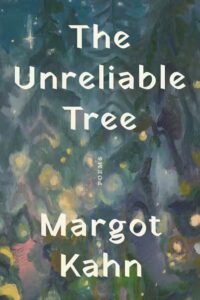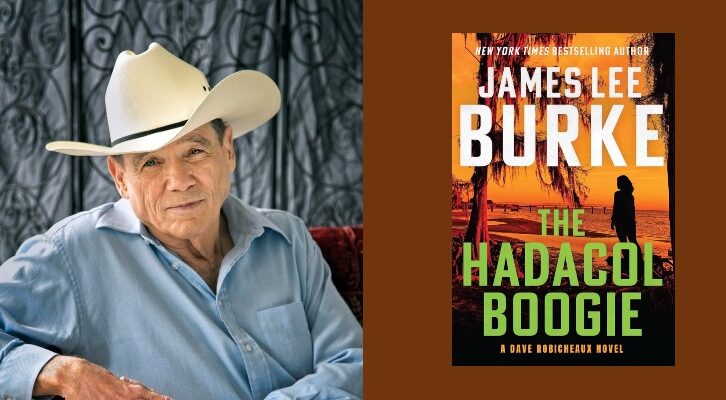
Poet Margot Kahn on Why She Left One Particular Poem Out of Her Collection
“One of the poems I put in my stack involved my father’s dick.”
A few years ago, I was invited to read some poems at a reading series in my town. The venue was a family-owned restaurant with a hippie vibe—antique furniture, layers of patterned rugs, and a stage set up for just these sorts of open mics. I prepared my poems as I usually do—a handful I feel sure of, and a few poems I want to read in front of other humans just to see how the air feels, whether it’s electric or felty. One of the poems I put in my stack involved my father’s dick.
Growing up, I lived with my mother in an apartment in suburban Cleveland. On the weekends, I’d visit my father at his apartment downtown. To get to my dad’s, we’d take the Rapid Transit to Terminal Tower and walk a few blocks from there to his building. He lived on a high floor and there must have been an elevator. The details are blurry, insignificant and significant at the same time.
The building where my father lived was fascinating for all the ways in which things worked differently from my mother’s house. Looking out the windows meant looking down, not out. Instead of grass, you could see the twisting Cuyahoga River and its many bridges. The apartment’s windows are gigantic in my memory, and spiders the size of my thumb made the unlikeliest webs in their corners. When the wind blew, the spiderwebs shook with a vibrational kind of fury.
It’s a poem about a girl who’s curious about the world and who—looking back at a relationship that wasn’t always easy—is awash in gratitude.
My father had a tufted leather couch that pulled out into a bed, and that is where I slept. The mechanism that made the couch transform was a delight, as was the liberty I was given to jump on the unfurled mattress. The thinness of the mattress and the squeakiness of the springs was discomfiting and comforting at the same time.
Most intriguing of all was the woman who was increasingly present at my father’s apartment—a tall, slim, pretty woman who was kind like my mother, and gentle, but who cooked different foods and generally kept to the edge of me. My mother never made mashed potatoes or fried chicken; when the woman who was to become my stepmother made them, she struck me as mythical. She also seemed to make a point of never competing with me for my father’s attention. I didn’t realize it at the time, but I’ve no doubt now that I found this endearing.
The morning I discovered my father’s penis, my soon-to-be-stepmother was still sleeping. I tiptoed into their dark room and my father got up to entertain me, to let my soon-to-be-stepmother sleep. But first, my father had to pee. I followed him into the bathroom and watched him take his penis from his underwear.
This was, so far as I can recall, the first time I’d seen a penis. Or, if before that day I’d seen one, it was the first time I took an interest—not in a sexual way, there was nothing sexual about it—in its functionality. What was it? What did it do? How did it work? In my memory, my father’s dick had a heft and straightness to it such that my small hand couldn’t reach all the way around. He probably had a boner. It was morning, and he was in his early thirties.
When I got on stage to read this poem about my father peeing, I looked out at the crowd of older adults, middle-aged parents, and a handful of children old enough to hear the word “dick” and perhaps pay attention. I suddenly felt I had to make a disclaimer: This is not a poem about a creepy pervert or childhood sexual abuse, I explained. It’s a poem about a girl who’s curious about the world and who—looking back at a relationship that wasn’t always easy—is awash in gratitude.
The audience in the hippie café exhaled what seemed like a sigh of relief. I took a breath, too. Then, I read the poem’s title and the crowd cracked up—and they continued laughing to the poem’s conclusion. Someone gasped; a friend’s son in the front row looked embarrassed; and the host’s father, who owned the establishment, stood up to applaud. The room felt suddenly brighter, as if someone had leaned against a light switch.
And yet, as I collected poems from the past ten years together into my first full-length collection, I realized that this poem I love so dearly did not, in fact, belong.
Writing this poem did for me what author Teresa Wong recently described so well in an essay she wrote about her graphic memoir, All Our Ordinary Stories. “If you’re writing from a place of curiosity and openness,” she says, “you will find a truer story and, I think, a better perspective on your life in general.” As a parent myself now, with many decades removed from my own tough years of youth and adolescence, the details I dredged up in this poem allowed me to see that my parents did their best to love me, to let me explore my own dark mysteries.
And yet, as I collected poems from the past ten years together into my first full-length collection, I realized that this poem I love so dearly did not, in fact, belong. Reading it aloud to a crowd made me realize that, without the opportunity to provide appropriate context, “Holding My Father’s Dick” takes on a sinister quality; its connotations twist around. And while it’s often great for a poem to have multiple layers of meaning, that wasn’t what I wanted for my dad, his dick, or me.
Again, speaking of her memoir Wong says, “Partway through the writing process, it no longer mattered whether strangers would ever read it. It was enough to do it just for me.” I thought of this as, with a heart that felt both heavy and light at once, I cut “Holding My Father’s Dick” from my collection. Maybe it will go in another book, maybe I’ll read it aloud again someday, or maybe it was enough to write it just for me.
*
“Holding My Father’s Dick, I Direct the Proceedings”
In my father’s bachelor pad, there’s zebra
carpet in the guest room and a leather
pull-out couch. We took the rapid transit
across downtown, an elevator up.
From the plate-glass windows, I can see
the city and its seventeen bridges
that all open differently, swinging
or lifting over the river that once
caught fire. Once is enough for people
to never stop talking about it.
My father pulls out the pull-out couch,
lets me jump until all the springs are broken.
In the early morning, the woman
who will become my stepmother sleeps.
The night before, she made chicken
and mashed potatoes, the skin fried crisp,
the starch silken and sweet with butter.
Now, my father gets up to greet me.
The lights are out and the shades are drawn.
We go quietly to the bathroom
and stand at the toilet. My father
unearths his dick from his underwear.
It’s pointing straight at the wall. Next
to the toilet is the sink, then the shower.
My father’s bristle brush that he dips
and swirls in a dish of cream sits
on the counter like the tail of a bunny.
The cream smells fresh. My eyes are on his penis.
I understand that out of it the piss
will come. Like a fountain. Like the little
fountain in the courtyard of my school
where a half-goat, half-boy plays the flute
surrounded by blue-green frogs and turtles.
I want to direct the proceedings.
May I hold it? I ask. My father
says yes. I wrap my hand around his dick,
grip it like a railing. Gently, he says
in his gentle voice. Now I think:
what if all girls were this lucky?
__________________________________

The Unreliable Tree by Margot Kahn is available from Curbstone Books, an imprint of Northwestern University Press.
Margot Kahn
MARGOT KAHN is the author of the biography Horses That Buck and coeditor of two essay anthologies, This Is the Place and Wanting. Her poems have appeared in New England Review, The Kenyon Review, The Hopkins Review, and elsewhere. She lives in the Pacific Northwest with her family.



















